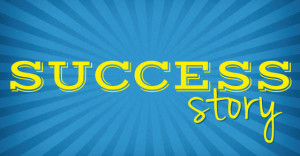
Conquering the Mountain One Day at a Time
 In 2010, R.L., 20, was considering transitioning to OPI from the hospital where he was an inpatient. This very sophisticated young man from New York state had been in and out of therapy for years and was understandably balking at going into a transition program from his current hospital.
In 2010, R.L., 20, was considering transitioning to OPI from the hospital where he was an inpatient. This very sophisticated young man from New York state had been in and out of therapy for years and was understandably balking at going into a transition program from his current hospital.
“My life is a big, open book with lots of pages and nothing written on them,” he said to an OPI admissions representative back then.
Yes, he considered suicide sometimes, but his real problem was substance abuse, mainly alcohol and marijuana.
He talked about other issues:
- He had been kicked out of college due to failing grades.
- Living at home was “very challenging—very hot and cold.”
- He was bullied as a kid.
- He was interested in learning about computerized machines.
- He was adopted as a child (“not a big deal”).
His parents and grandparents together hired a special service to transport him from home to the hospital. Now it was time to move on to a transition program, and he was unhappy about the prospect.
“But then I realized that leaving (the hospital) was starting to trigger my desire to use. So I decided to go to OPI,” he recently explained.
R.L. was a participant at OPI for 6 months, the minimum length of stay.
When he arrived, he told Jenny Martin, Director of Career and Volunteer Services, that he wanted to volunteer, get involved in central casting, and be certified as an emergency medical technician.
He told the Director of Education that, while eventually he wanted to get back into his old college, what he really wanted to do at OPI was get a job.
“I needed to feel some normalcy,” he said.
Together, he and Jenny discovered a new restaurant that was opening nearby.
“She helped me write my cover letter. I had had only one job before, and she helped me make my resume look good. She knows how to use key words like ‘efficiency’ and ‘collaboration.’ She’s really good at it. She was my ‘go-to-girl.’ ”
R.L. got the job, was promoted to manager a month later, and worked nearly full time while he was at OPI.
“But the whole time I wasn’t being honest about how bad I felt,” he said. “I was doing my own heavy depression management. I was thinking about suicide, but I didn’t tell anybody. I was relapsing and not telling anyone because then I would have to go back to the beginning. I was living this huge lie. It became so uncomfortable and upsetting. The quality of my life was in the s—–. It wasn’t a happy existence.”
Late one night, he called an OPI therapist he had been working with and told her the truth: he really didn’t have a year of sobriety.
“I’ve been lying about that,” he told her. “I’ve been lying about a lot of things. I don’t know what to do about it.”
He said this confession is what set the ball in motion.
“You know, if you have a two-ton ball, it will roll down the hill, but getting it started is really difficult. It’s part of a process and, for me, that was the first step.”
He began serious work with his therapist/case manager, Will Owens, Director of Staff Development and Research.
“I would think, ‘Well, I gave you a little piece of information and you didn’t try to f— me over and it worked. It wasn’t like I suddenly said, ‘OK, I will trust you now.’ It was more step-by step. The more I stayed there, the more I realized it was OK. I started to see that there is definitely something happening here. Some days you take a step backward, but hey, that’s the way the world works. Eventually you conquer the mountain one day at a time.”
Today, two years later, R.L. is on the dean’s list at Santa Monica City College, lives nearby, and works in a preproduction studio. He is studying film and sociology. “I know it’s kind of an odd combination, but once you get into it, they are so interconnected. If you think about your favorite film, there is some kind of social issue or commentary that is being discussed. It’s a subtle thing.”
He isn’t sure what he wants to do in the film industry but has narrowed it down to producing or directing medium budget independent films, the kind that could go on to Sundance or even Cannes.
“I might end up in a studio, but it would be more fun in a smaller environment where you have more artistic control. That’s where I see myself in 15 years.”
R.L. has an AA sponsor and has just become a sponsor himself. He drives 45 minutes to OPI every week to “check in” with Marisela Guillen, Director of the Education Department Student Services.
“I show her my homework, and we talk about how my term papers are going. If I write a nice paper, I show it to her.”
In addition, he continues to meet weekly with Will.
“It doesn’t get much better than Will,” R.L. said. “He saved my life. I pretty much have the world’s best support team—it’s really not fair for everybody else.”
To commemorate the Optimum Performance Institute’s 10th anniversary, every newsletter in 2014 features a story about a young adult who completed the OPI or OPI Intensives and include details about his or her experiences as a participant and what they are doing now. We will use miscellaneous initials instead of names to keep their identities confidential.
